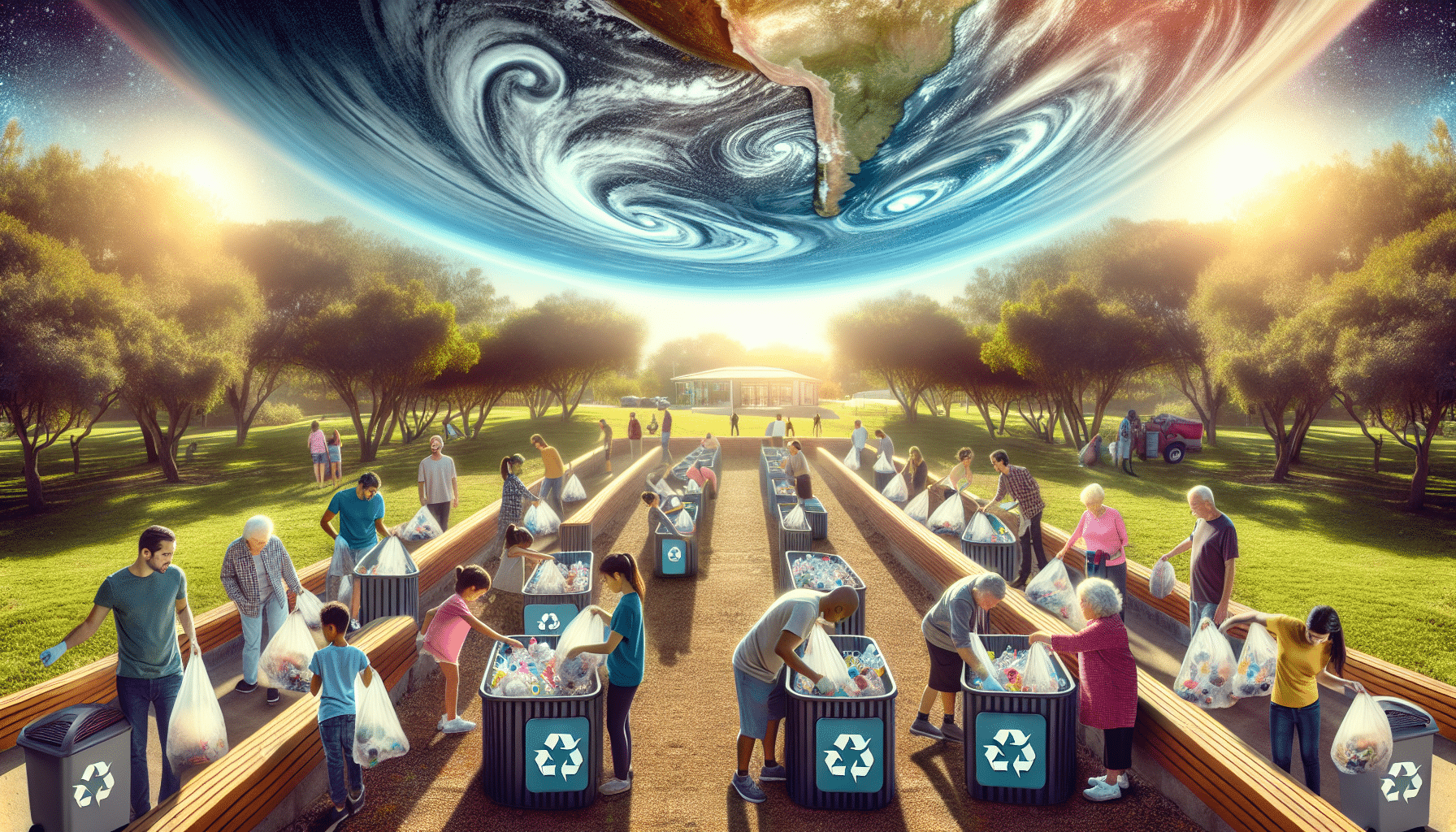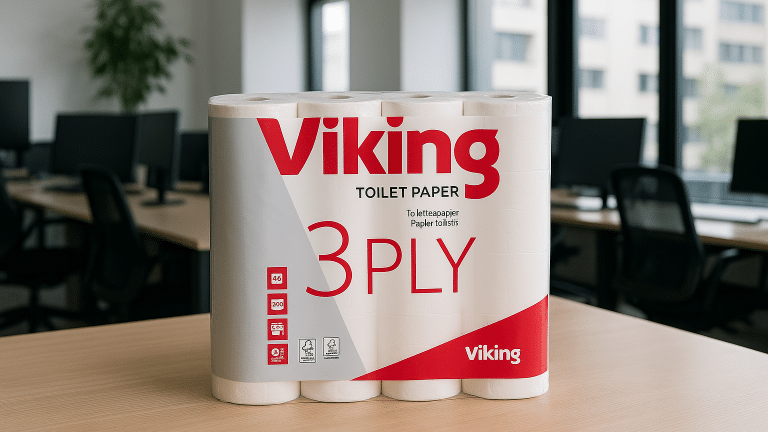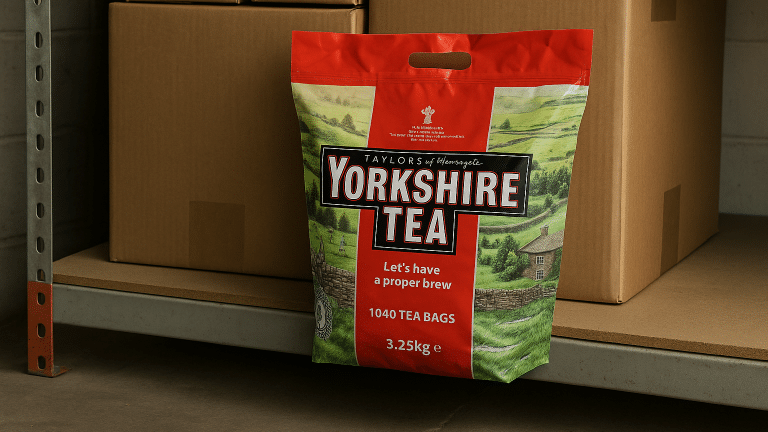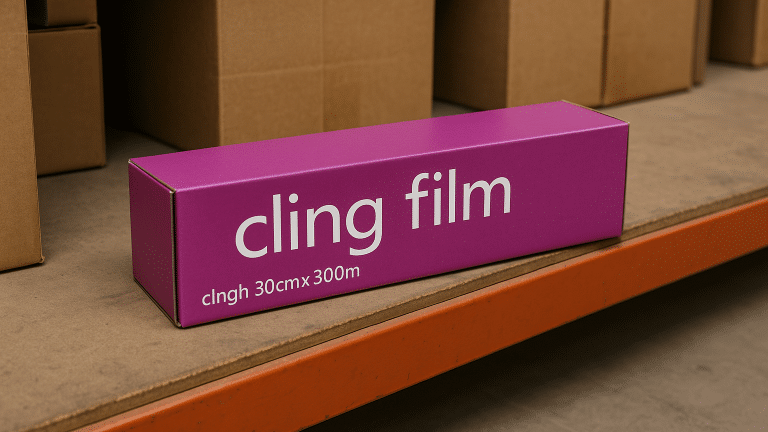
Can Plastic Bags Be Recycled? Transform Your Trash
Can plastic bags be recycled? Discover the surprising truth and simple steps to contribute to a greener planet in our guide.
Last Updated on 06/10/2025
We all know the drill: you’re standing at the bin, plastic bag in hand, wondering, “Can this be recycled?” The confusion, the guilt, and the desire to do right by our planet can add an unexpected layer of stress to our daily lives. Today, we’re tackling this head-on.
By understanding the ins and outs of recycling plastic bags, we’re not just clearing up confusion; we’re simplifying one of the many little decisions we face every day. Let’s break down the barriers to recycling and make it a stress-free part of our routine.
Key Takeaways
- Identifying plastic bag types is essential for effective recycling and environmental contribution.
- Cleanliness and proper disposal at designated recycling points are crucial for successful plastic bag recycling.
- Utilizing recycling locators and adhering to local guidelines enhances recycling efficiency and environmental impact.
Understanding Plastic Bag Varieties
Plastic bags come in a kaleidoscope of types, each with its unique recycling needs. Grocery bags, resealable bags, and plastic wrappers are just the tip of the iceberg. Recognizing these differences is crucial for effective recycling and ensuring we contribute positively to the environment.
Diving deeper, we see that soft plastics, such as bread bags and produce bags, require a different handling process compared to more rigid plastics. The distinction between plastic films and flexible plastics is also key. Understanding these categories helps streamline the recycling process, making it easier for everyone involved.
| Type of Plastic Bag | Recyclability | Common Uses | Recycling Locations |
|---|---|---|---|
| Grocery Bags | Yes, at specific collection points | Shopping | Supermarkets, recycling centers |
| Resealable Bags | Limited, check local guidelines | Food storage | Varies by region |
| Plastic Wrappers | Yes, at specific collection points | Packaging for snacks, bread | Supermarkets, recycling centers |
| Bread Bags | Yes, at specific collection points | Bakery items | Supermarkets, recycling centers |
| Produce Bags | Limited, check local guidelines | Fruits and vegetables | Varies by region |
It’s this knowledge that empowers us to make a difference. By sorting our plastics correctly, we not only ease the workload at recycling centers, but we also improve the efficiency and effectiveness of recycling programs. This is how we move closer to a sustainable future, one plastic bag at a time.
The Recycling Process Explained
The journey of a plastic bag from being used to recycled is fascinating. Initially, these bags are collected at designated recycling points, including supermarkets and local recycling centers. This is the first step in a series of actions aimed at giving these materials a new lease on life.
Once collected, the bags undergo sorting and cleaning, removing any contaminants that could hinder the recycling process. They are then processed and transformed into new materials, closing the loop in the recycling cycle. This process not only conserves resources but also reduces landfill waste.
| Step | Action Required | Purpose |
|---|---|---|
| 1 | Empty and shake out any debris | Remove contaminants that hinder recycling process |
| 2 | Rinse if necessary and dry completely | Prevent mold and ensure cleanliness |
| 3 | Flatten or fold bags | Reduce space and facilitate transport |
| 4 | Consolidate bags into one bag | Minimize volume and ease handling |
| 5 | Drop off at designated recycling point | Ensure proper recycling and avoid landfill |
Understanding each step of this journey highlights the importance of our participation in the recycling loop. By ensuring our plastic bags are properly disposed of at carrier bag collection points, we play a pivotal role in the success of recycling programs. This collective effort is vital for a sustainable future.
What Goes in the Recycling Bin
Navigating the do’s and don’ts of what can be tossed into the recycling bin can be perplexing. For plastic bags, the rules can vary widely depending on your local recycling program. Some areas welcome these items in curbside bins, while others direct them to special collection points.
The golden rule here is cleanliness. Ensuring that plastic bags are free from food residue and moisture is essential. Such diligence prevents contamination of other recyclables, ensuring the entire batch can be successfully processed.
This attention to detail is a small but crucial step in our recycling efforts. By familiarizing ourselves with the specific requirements of our local recycling programs, we contribute to a more efficient recycling system. This is how we ensure that our efforts to recycle plastic bags do not go to waste.
Special Recycling Points for Plastic Bags
While recycling at home offers convenience, not all materials are suited for the curbside bin. Plastic bags often require special handling, which is where supermarket collection points and other dedicated recycling centers come into play. These facilities are equipped to deal with the unique challenges of recycling soft plastics and plastic films.

These collection points are not just about convenience; they represent a crucial part of the recycling infrastructure. By providing a place for consumers to bring their plastic bags, supermarkets play an active role in environmental stewardship. It’s a system that benefits everyone, from the consumer looking to do their part to the recycling centers themselves.
Finding these collection points has been made easier thanks to resources like the recycling locator. With just a few clicks, you can find the nearest drop-off location, making it easier than ever to recycle your plastic bags. This accessibility is a key factor in encouraging widespread participation in recycling programs.
Tips for Effective Plastic Bag Recycling at Home
Effective plastic bag recycling begins with a few simple practices. First, consolidating your bags into one makes for easier transport and drop-off at recycling points. It’s a small step that can significantly streamline the recycling process.
Ensuring bags are clean and dry before recycling is another essential tip. This prevents contamination, which can derail the recycling process. Also, consider reusing plastic bags where possible before recycling them. This extends their lifecycle and reduces waste.
Finally, staying informed about your local recycling guidelines ensures that you’re recycling correctly. Utilizing tools like the recycling locator helps in finding convenient drop-off locations for your plastic bags. By adopting these habits, we can make a substantial impact on the environment, right from our homes.

Conclusion
Throughout this article, we’ve tackled the confusion surrounding plastic bag recycling, clarifying the types that can be recycled, the process they undergo, and how each of us can contribute from home. By understanding the specifics, such as which bags go in the recycling bin and the importance of supermarket collection points, we’ve paved a path towards more effective recycling.
This journey reflects our collective effort to minimize environmental impact and emphasizes the vital role of community participation. With this knowledge, we’re equipped to make informed recycling choices, leading us towards a more sustainable future. Let’s keep pushing forward, knowing that together, we can make a difference.
Frequently Asked Questions
How are recycled plastic bags repurposed?
Recycled plastic bags can be transformed into a variety of products, including composite lumber, small household items, outdoor furniture, and trash can liners. The recycling process involves collecting, sorting, and cleaning the bags before melting them down into plastic pellets. These pellets are then used as raw material for manufacturing new items, contributing to a circular economy and reducing the need for virgin plastic.
What is the environmental impact of recycling plastic bags?
Recycling plastic bags significantly reduces their environmental impact by lowering the demand for new plastic production, decreasing pollution, and conserving resources. It also helps mitigate the problem of plastic waste in landfills and oceans, where bags can take hundreds of years to decompose, releasing toxic substances and harming wildlife in the process.
Can biodegradable plastic bags be recycled with regular plastic bags?
Biodegradable plastic bags typically cannot be recycled with regular plastic bags because they are designed to break down more quickly under certain conditions. Including them in the regular plastic recycling stream can contaminate the recycling process. It’s important to check local recycling guidelines for the proper disposal of biodegradable bags, as they may require specific treatment.
How can consumers reduce the use of plastic bags?
Consumers can significantly reduce the use of plastic bags by opting for reusable bags when shopping, choosing products with less packaging, and recycling plastic bags where facilities exist. Additionally, supporting stores and brands that use eco-friendly packaging and participating in local clean-up efforts can help address the issue of plastic bag pollution.
What are the challenges of recycling plastic bags?
Recycling plastic bags poses several challenges, including contamination from food residue or other materials, the lightweight nature of bags which can cause them to get caught in recycling machinery, and the limited market for recycled plastic bag products. Addressing these challenges requires improved recycling technology, better consumer education on proper bag preparation for recycling, and increased demand for products made from recycled materials.












